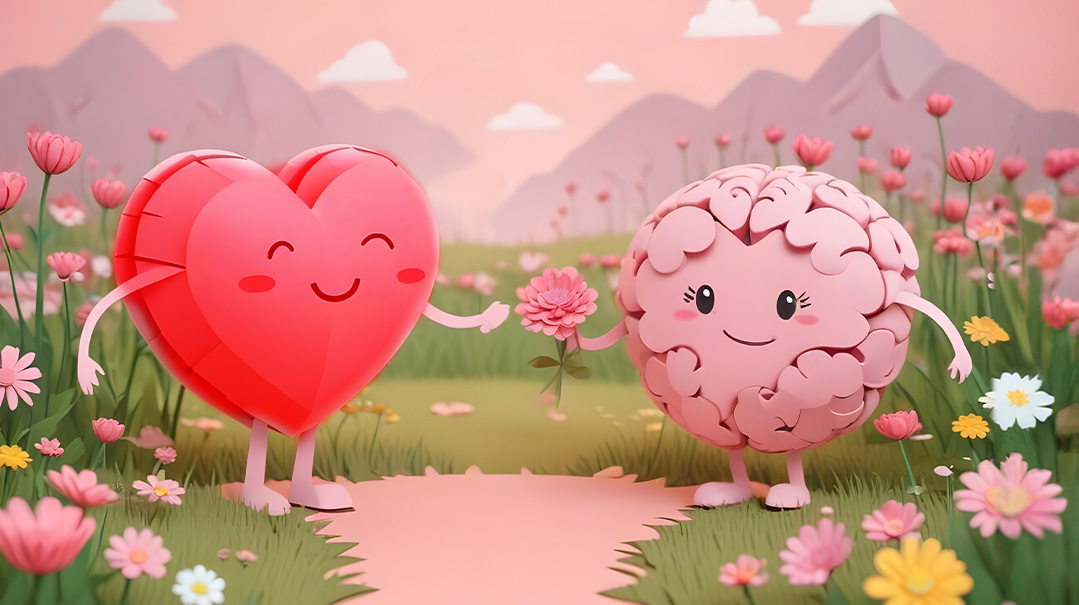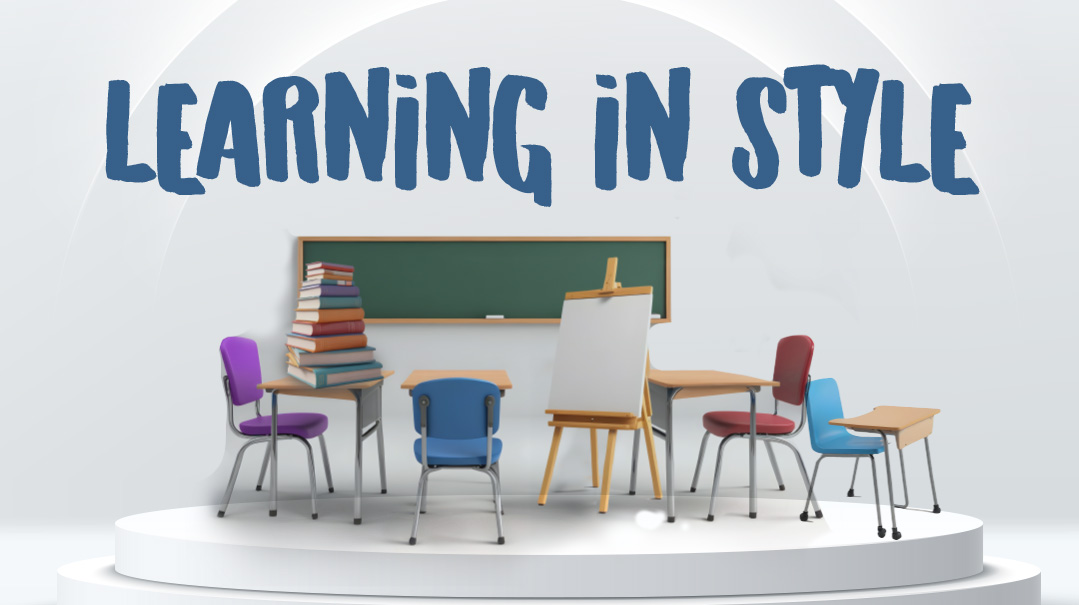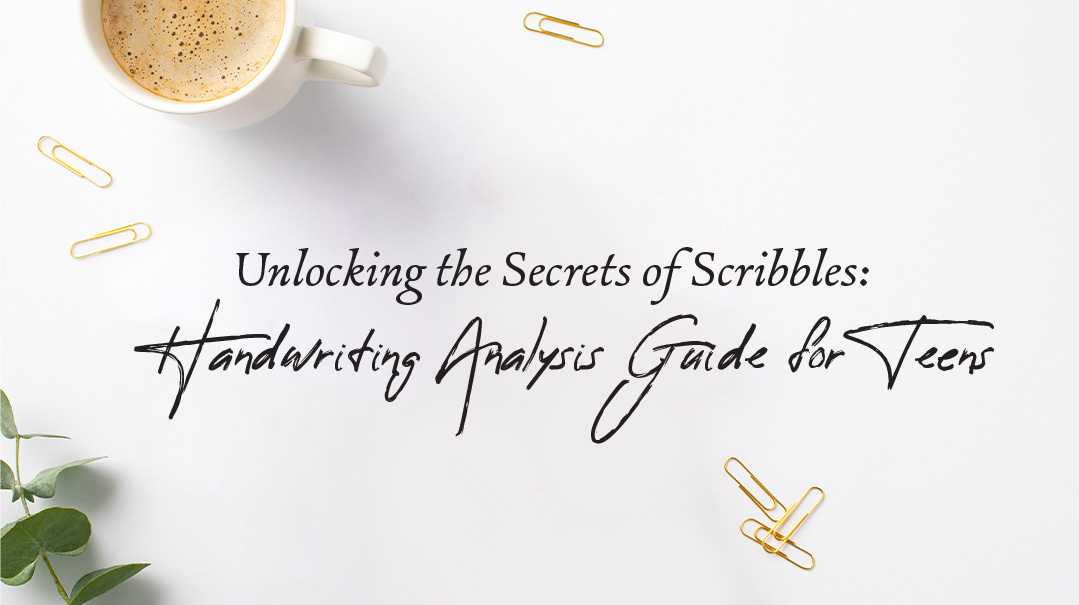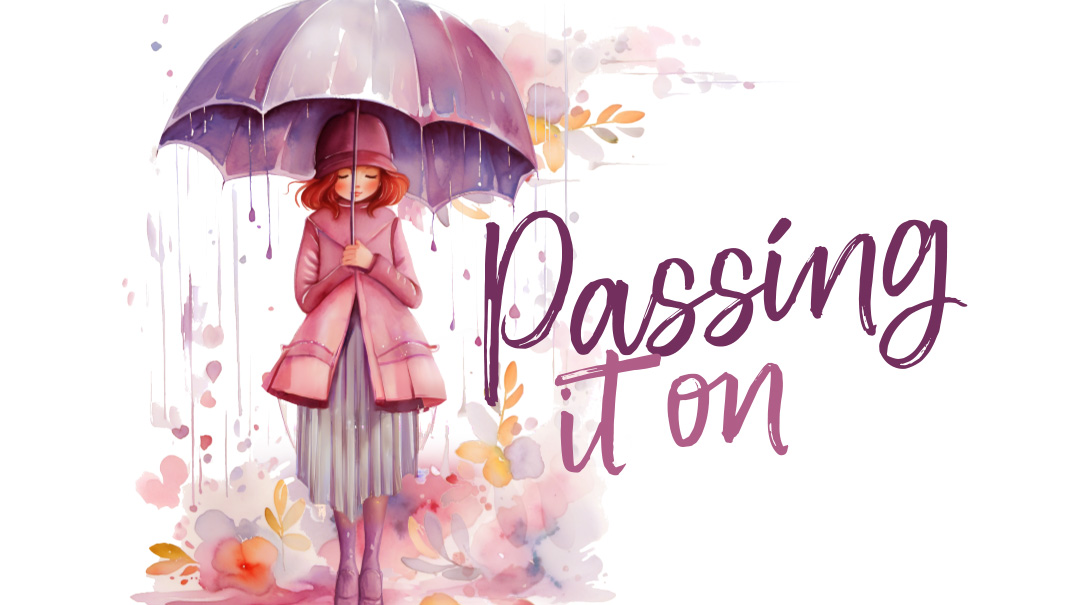My Worst (Best) Enemy
| February 6, 2024I was impressed at her ignorance. I was mad at her flippancy. “What do you mean, you’ve been there for me?
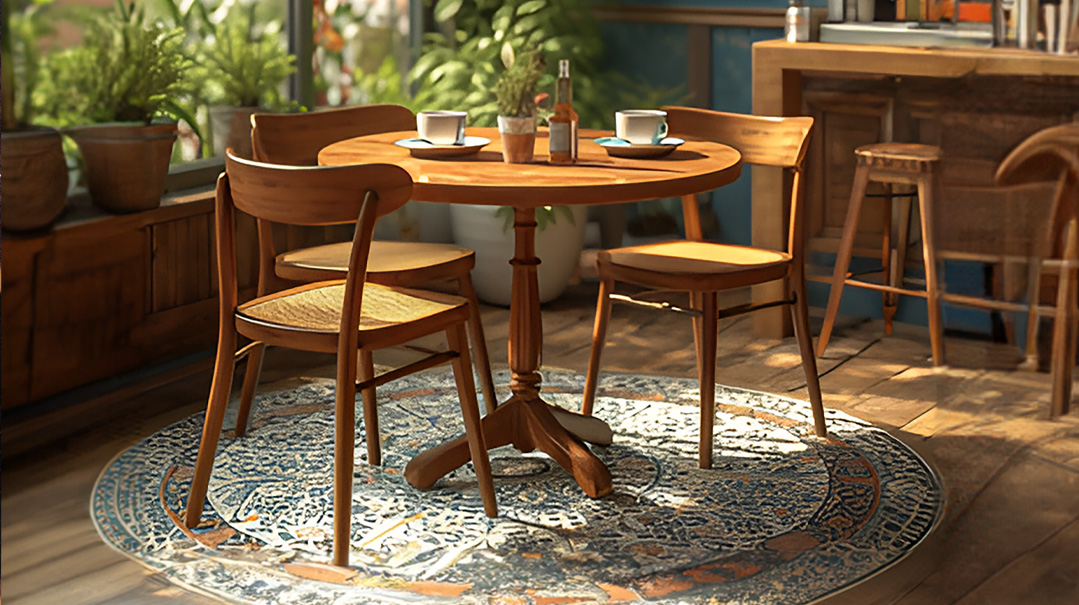
I walked into the coffee shop. It had the perfect vibe for, well, a coffee shop. Dark ambiance, raw wooden beams, the air was light with gentle chatter and the smell of coffee.
Making my way to the counter, I read the menu, settling on a vanilla latte. I ordered my coffee and found an empty booth in the corner and waited.
I’d arrived early, so I did the nosey-people-watching thing for a bit before I saw the person I was supposed to meet.
Even from afar, I could tell who she was, what I think she represented.
She ordered her drink and made her way to my table, sitting down opposite me.
Immediately I felt like I made the wrong decision.
She was giving off judgmental vibes, in her classy I-look-casual-but-I’m-actually-wearing-an-expensive-outfit.
And here I was, in my pullover and long skirt.
Which is to say that she was all regal and put-together and I was as glamorous as a slug.
“You’re probably doubting yourself now,” she interrupted, sipping her drink. Her lip gloss, tinted red like the heat of my embarrassment, left no stain on the lid.
“I— I guess. How did you know?” I stammered.
“Because I know you. I’ve known you for years, even though we’re only meeting now.”
Interesting, I thought. I suddenly got flashbacks of a feeling, at simchahs, at school, at home, an I’ll-never-be-good-enough vibe.
Trying to sound confident, I responded, “Okay, so what made you decide to meet? Like, why now?”
She scoffed. “Me? You’re the one who wanted this.”
How could I want something that I didn’t even know? “Who are you?”
“Honey, I think you know who I am.” Her smirk made me feel like I wasn’t worthy of being stepped on by her fancy booties.
Suddenly, I felt like all of my decisions, moves, choices, were all pressing in on me, making me rethink everything.
Suddenly, I felt the presence of doubt, its pungent odor, invisible but alive.
At that moment, I knew. “I know who you are. You’re my inner critic.”
“Yes.” She sipped her coffee, waiting for me to continue.
“So…” I started, but unsure where to go. “Well, I guess, like, what do you want?”
“I think the real question is, what do you want?”
I fiddled with my cup, running my fingers over the textured sleeve that read Caution, I’m Hot!
What did I want from her?
I wanted clarity. I wanted to understand what she did, why she did it.
Why she made me doubt myself. Why every decision I made was thought over, hundreds of times, believing it was wrong, thinking I could’ve have done it better, smarter, quicker.
I asked simply, “Why do you do what you do?”
She was about to respond, probably with some biting retort, but I cut her off.
“Don’t give me baloney. Why do you make me doubt myself? Why is it that, because of you, I question myself, think, rethink, and overthink everything?”
She shook her head at me, like I couldn’t possibly understand. “I’m here for you, don’t you see?” She sipped her coffee elegantly. Back straight, not a worry in the world, in a way I could never do, never attain. I was slouched with the grace of a dead plant.
“Don’t I see what?”
“How I’m there for you! What I do to help you!”
I was impressed at her ignorance. I was mad at her flippancy. “What do you mean, you’ve been there for me? What have you actually done for me? And by that, I mean besides making me doubt myself, because that’s not helpful. Like at all. And give me real answers. Make me understand. Talk to me like a normal person.”
Embarrassment flooded through me for rambling, and then I was upset at myself for being embarrassed. I shut my mouth. Don’t give her the power to make you rethink this, I told myself.
Feeling stupid, I took a gulp of my coffee, trying to mimic her confidence and poise and not let her see that I’d just burned my throat.
I watched her inhale slowly, and I saw from her face that she was working on a response.
Good, I thought, let her think before she speaks, for once.
“I’m here to help you, truly. Let me finish and I will explain,” she said.
Did I see some regret in her eyes?
Maybe.
Did I care?
Nope.
I nodded at her to continue as I tried to soothe my blistering mouth.
“I’m here to help you,” she repeated. “My goal is to keep you safe. You see, you are confident, you are impulsive. And usually, those are good, healthy features. They allow you to do things, make challenging decisions, and help you through life. However, too much confidence and impulsivity can be dangerous. And even if not dangerous, they can have negative outcomes.”
I reluctantly agreed with her point. But I didn’t wanna hear that, and I definitely didn’t wanna hear that from her. “And who are you to decide what’s the right thing?”
She nodded. There was I-hear-your-point mixed with you-should-know-this-answer-already in her expression. “Throughout your life, because of your self-doubt, you worked on yourself to become a better person. That’s from me.”
Ha. “I also got the feeling that I’ll never be good enough. That I should just give up. Yeah, how’s that helpful?”
Finally, I’d made her feel the teeniest bit uncomfortable. “Well. Perhaps that was a bad example,” she said.
I moved my hands dramatically. “So. Try again.”
She held my gaze, unwilling to lose. “And the time when I told you not to get that purple dress? You found a prettier one.”
“Yeah. You also told me how ugly I look in everything, that I’ll never feel good about myself….”
She ignored me, brushing away my words as easily as she would imaginary lint from her dress. “What about when I told you that you weren’t doing enough chesed? I made you take on more and got you more sechar!”
I was at a loss for words; I simply couldn’t understand how she could be so ignorant. “But you didn’t have to tell me that if I didn’t do chesed, I was worthless and wasting my time! You didn’t have to tell me that everyone does more, and what difference would my ‘tiny’ act make?!”
The heat I felt was not just from my burned tongue. I was angry at her, at her inability to see what she did, that she made me get so upset.
But, to my surprise, she was avoiding my eyes. She knew I was right.
She knew she had taken things too far.
She didn’t say anything. I didn’t know what to say, either.
Finally, she broke the silence. “I understand why you’re upset. I’m not trying to negate your feelings. I would like to explain what my role was supposed to be. Okay?”
I nodded.
She rested her forearms on the table, cradling her drink. She was as calm as ever. I was still simmering on the fire.
“You see,” she said, “an inner critic is known to be helpful. Its main purpose is to help with self-awareness. It’s there to help you think about what you do, who you are. It keeps you in check. Self-awareness is knowing and understanding how you feel and why.”
Refraining from rolling my eyes, I said, “Yes, I know what self-awareness is.”
“Good for you,” she responded. “In moderation, the inner critic can help you work hard and do your best. It can encourage you to put in effort to achieve your goals. The point is to have a balance between motivation and self-compassion, and not have too much self-criticism, which can lead to stress.”
“Which you failed to do,” I noted.
“Perhaps. But let me finish explaining; you want to understand, don’t you?”
“Mmhmm.” I said, begrudgingly. This time, I did roll my eyes.
Continuing, she said, “Inner critics also help problem-solve. It can help you think about your choices and actions in a better way.”
She paused but I said nothing.
“Lastly, inner critics hold you accountable for your actions, encouraging you to take responsibility for your decisions and their consequences.”
“Great. Thanks for sharing and all that. When did you turn from a good guy into the bad one?”
I was curious now. My initial anger had subsided as I listened.
“Well,” she said, “I suppose the first reason can be trauma. Sometimes, when something really bad happens, the body and mind get super alert to protect us. It’s like a warning system called ‘fight or flight.’ This can make our inner critic extra watchful and critical as a way to keep us safe.”
I didn’t wanna agree, but I couldn’t deny that her words were true. “You’re saying that, to keep me safe, the critic becomes, like, more critical to help me get through experiences. What would an example of that be?” I tried not to sound annoyed.
She sipped her coffee again. Was her cup endless that she never finished drinking? Or did she just want to continue making me feel insignificant?
“In such a case, an inner critic will constantly remind you to be careful, helping you stay alert and preventing you from doing anything wrong, but it can often make you feel anxious or doubtful. In school, your inner critic might remind you to check your homework carefully to avoid mistakes, but it can sometimes make you feel a little worried about getting things right.”
Hmm. “So you’re saying that the constant criticizing and questioning is a way of keeping myself safe, but it can lead to overthinking and anxiety?” I asked.
“Correct.”
“Okay, I think I get it. Any other examples?”
“Of course. Another reason why an inner critic would take over in a negative way would be from a fear of vulnerability,” she explained. “After a person goes through something, it might make them be careful about anything that seems even a little bit scary or risky. If someone hurt their feelings before, they might have a voice inside their head saying, ‘Don’t show your feelings, it’s not safe’ or ‘Think a lot before you trust them because they might let you down.’ This voice makes them keep their feelings to themselves and not trust easily. An example of this would be if, after a friend teased you, you might feel a bit scared to trust new friends easily.”
“So, it’s like a protective shield, but sometimes it can keep me from making friends and being happy. Like, from living a normal life.”
“Exactly. The inner critic tries to help, but sometimes it becomes unhelpful. It starts causing negative thoughts, self-doubt, and stress, which isn’t good.”
I was understanding this. It made sense, like a saleslady who’s trying to help but offers the wrong style of clothing. I understood.
“I get it, but why does it come out so negatively, if you want what’s best for me?” I asked. I tilted my cup back, trying to get the last dregs of coffee, because I paid dearly for it and wanted to drink every last drop.
She nodded. Finally, I had asked something good. “Self-criticism can make a person feel fear, shame, guilt, or anxiety, and can help get the message across quicker, when a ‘gentle’ or ‘positive’ voice wouldn’t have the same effect. The critical voice becomes familiar, making it hard to start thinking in a more positive way.”
“Hmm.” I pursed my lips to the side as I processed this. “You’re saying that the inner critic uses negative language to make the situation more dramatic, so I feel more desperate and do things I wouldn’t normally?”
“Exactly. See?” she said, “you’re actually getting it.”
“Yeah,” I said sarcastically.
Pushing her (empty?) cup aside, she folded her hands in front of her, still elegant and beautiful. Still intimidating. “Now, I have a question for you.”
“Sure,” I said. What could she want from me?
“Why are you suddenly interested in me? What happened recently that you wanted to change things? I thought we had an understanding. You’re so resistant to change, you know.”
What? How could she spin this around? “We’re not friends, and I don’t think we were ever meant to be. And I’m not the one resistant to change; you are. You’re the one causing drama. You make me rethink everything. You don’t want things to change.”
She flinched. The first crack in her candy-coated glossy armor. “Wait— That’s—”
I was on a high now, and not just from caffeine. “You’re a coward,” I said, pointing a finger at her. “That’s what you are. You don’t want anything good. You just want things you can control. You want things to be easy because you’re too afraid of anything else. That’s what this is. It’s not about protecting me; it’s about control.”
Her posture, which I thought could not get any more perfect, straightened, head held high. She wasn’t going down so easily, it seemed. “You’re misunderstanding me. That’s not what this is.” But her voice was uncertain, and I knew I was right.
“Then clarify it.” I crossed my arms over my chest. Defensive, maybe, but also confident.
“The reason I’m resistant to change,” she said, “is that it hasn’t always been good. I know that you’ve grown used to hearing what I say. Familiarity simply makes it harder to change. We’ve both gotten used to this.”
“You’re still not getting it,” I said, exasperated. “I mean, yeah, I wanna change the tone, but I wanna know why you don’t want what’s best for me. You never answered why you make me doubt myself.”
She sighed delicately. “You won’t like this, and you won’t agree with this. But I truly wanted what was best for you. I truly thought I was doing the right thing.”
I had nothing to say to that. I looked at her with my eyebrows raised. I was never able to do the one brow up thing.
“That’s really what it is,” she said. “I want to keep you safe from things that could go wrong. I want you to be careful and not take risks to avoid bad outcomes. I thought it would make you stronger. For me, it seemed to work, and I kept doing it. I wanted to keep you safe from getting hurt by preparing you for the worst. I thought it would be easier if you expected people to let you down.”
I still had nothing to say to that. What was I supposed to tell her? That all she was saying was filled with more garbage than the dumpster outside?
But I had no energy to argue anymore.
She seemed fine with that since she continued talking. She’d had a lot of practice over the years to talk. “Looking back, I see it was wrong, but I promise you that I had the best intentions.”
With a sarcastic laugh, I said, “Best intentions? Like to criticize me to the point where I hated myself enough that I thought the world was better off without me? Tell me, please, how that was the best intentions.”
She was quiet for a long while. Shaking her head sadly at herself, she said quietly, “You’re right. It was wrong of me. I never meant for it to come to this.”
It became awkward then. Here we were, at an impasse, two cars, headlight to headlight at a stop sign, neither wanting to make the first move, but neither wanting to crash, either.
She looked at me, straight at me, with respect in her eyes, like she suddenly knew who she was working with.
Like I was worthy of her time, of her respect.
“How do you want us to move forward?” she asked gently. “Because I will always be a part of your life, although I would prefer to be your friend, rather than your enemy.”
How did I want this? Because, to some extent, she was right. A voice inside me, a conscience, would be good at times, as long as it was helpful and not harmful.
“I guess, you know, you can say the same thing that you were originally saying, but nicer this time.” I felt silly with my caveman terminology, but I wasn’t her. I didn’t have to be her, and I surely didn’t have to feel bad about myself for not having the same vocabulary range as someone else. “You can literally bring the same point across but do it better. Like, instead of ‘You always mess things up. You always fail,’ you can say, ‘Mistakes happen, let’s learn from them and improve.’ It’s the same thing but not.”
She nodded, smiling slightly. “I think I can do that. It will take time to get used to, but I’m willing to give it a try, if you will allow me to.”
“Yeah. Also, be nice to me, not harsh.” I laughed lightly. “As they say, it is rain that grows flowers, not thunder, so be the rain, you know?”
She nodded again. I continued, “I won’t always listen to you. I’m gonna try my best to ignore you, especially when you’re saying negative things. I’m gonna reach out to other people.”
“Please do,” she said, and I knew she meant it genuinely. “I don’t want to be your only source of comments and criticism.”
I was happier now that we were able to end this in a good way. “I want us to be friends. Friends care about each other. If things don’t feel right between us, I’ll talk to someone to help me feel better and think in a healthier way.”
Smiling, she said, “Perfect.” She gathered her coffee cup, preparing to stand up. “Anything else?”
“That’s all,” I said, “And, well, I’m glad I met you, and I’m looking forward to being friends.”
“Likewise.”
She was gone, almost as though she was never even there.
But the presence was different.
There was no longer this stifling, pressing intimidation that was locking me in place.
I felt more confident, lighter, and happier than I was before.
Inner Critic?
Hopefully, now, I will have an Inner Cheerleader.
That’s a stupid name.
I mean, that’s definitely a cute name, and even if no one else likes it, I do.
(Originally featured in Treeo, Issue 998)
Oops! We could not locate your form.

